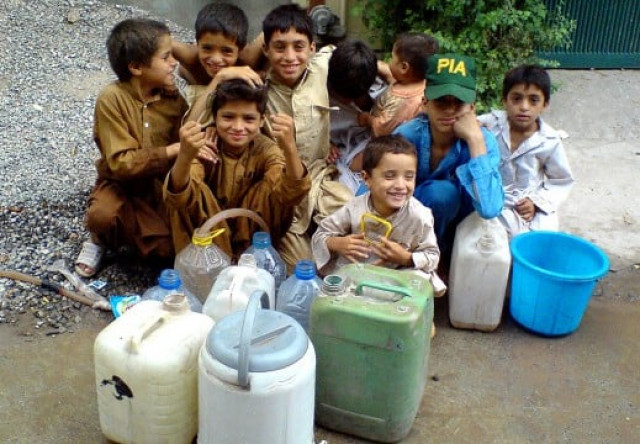State of our children
A staggering one-third of all children under 5 in Pakistan are underweight — pointing to widespread food insecurity.

The demographic is skewed towards youth with 41.2 per cent of the population under 18 years. PHOTO: Agha Mehroz/FILE
The litany of bad news is long. There are 817,000 people who are HIV positive. The demographic is skewed towards youth with 41.2 per cent of the population under 18 years. Their prospects in a country that under-invests in education are bleak. Seven per cent marry young — at 15 or younger and 24 per cent are married by the time they are 18, further bloating the youth bulge as they in their turn produce children. Ten per cent of women aged between 20 and 24 had their first child before they were 18. Contraceptive prevalence is low among women, with 27 per cent using some form of contraception. Development is hampered everywhere by poor literacy rates, with the consolidated rate put at 55 per cent, but in rural areas and Balochistan and inner Sindh, literacy rates are below two per cent for women.
On the plus side, 91 per cent have access to potable water, 72 per cent of the urban population had access to sanitation but only 34 per cent of rural population did, giving a national average of 47 per cent. Twenty-one per cent of Pakistanis live in abject poverty, subsisting on $1.25 a day or less. All these figures indicate chronic debilitating malaise and a radical rethink of developmental priorities is needed to mitigate the decline.
Published in The Express Tribune, February 2nd, 2014.
Like Opinion & Editorial on Facebook, follow @ETOpEd on Twitter to receive all updates on all our daily pieces.














COMMENTS
Comments are moderated and generally will be posted if they are on-topic and not abusive.
For more information, please see our Comments FAQ